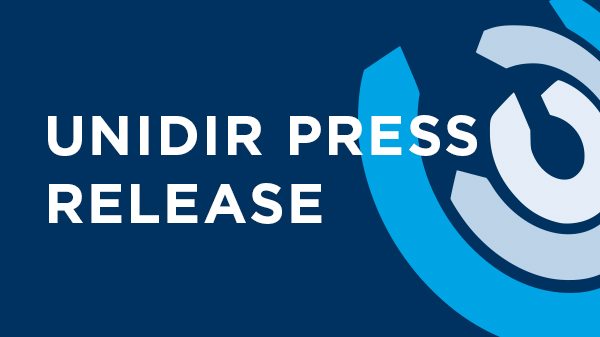UNIDIR REVIEWS ARMS CONTROL PROCESSES IN THE MIDDLE EAST AND THEIR IMPACT ON THE UPCOMING 2020 NPT REVCON
GENEVA, 5 March 2020 — As part of the UNIDIR 2020 NPT Review Conference series, the Middle East Weapons of Mass Destruction Free Zone (ME WMDFZ) Project convened a day-long event at the Palais des Nations, on 6 February 2020. The event facilitated dialogue and generated ideas to help frame key issues and inform States about the Middle East Weapons of Mass Destruction Free Zone and its broader implications, including how it could feature in the upcoming 2020 NPT Review Conference. Participants included current and former government officials, academic and think tank experts, as well as civil society representatives. The event was generously supported by the Permanent Mission of Japan in Geneva.
Speakers at the event felt that the constructive deliberations and positive conclusion of the first session of the 2019 Conference on the Establishment of a Middle East Zone Free of Nuclear Weapons and other Weapons of Mass Destruction could have a positive impact on the upcoming 2020 NPT Review conference by relieving some of the pressure that could be seen in previous NPT review cycles around the ME WMDFZ issue.
Other speakers presented lessons learned from four relevant arms control processes: the Arms Control and Regional Security process, the decision to convene a conference on the ME-WMDFZ agreed in the 2010 NPT Review Conference final document, the informal consultation process that took place in Glion and Geneva between 2013 and 2014, and the Joint Comprehensive Plan of Action (JCPOA). Event speakers also made concrete proposals for a prospective ME WMDFZ around three different themes: nuclear verification, Confidence Building Measures (CBMs) related to peaceful applications of nuclear technologies, and how to address chemical and biological weapons in the context of the Middle East.
A summary report on the discussion as well as the key findings from the event will be published in April 2020.
For more information, please contact: Tomisha Bino, tomisha.bino@un.org
ABOUT UNIDIR
UNIDIR is a voluntarily funded, autonomous institute within the United Nations. One of the few policy institutes worldwide focusing on disarmament, UNIDIR generates knowledge and promotes dialogue and action on disarmament and security. Based in Geneva, UNIDIR assists the international community to develop the practical, innovative ideas needed to find solutions to critical security problems. Visit: www.unidir.org.
